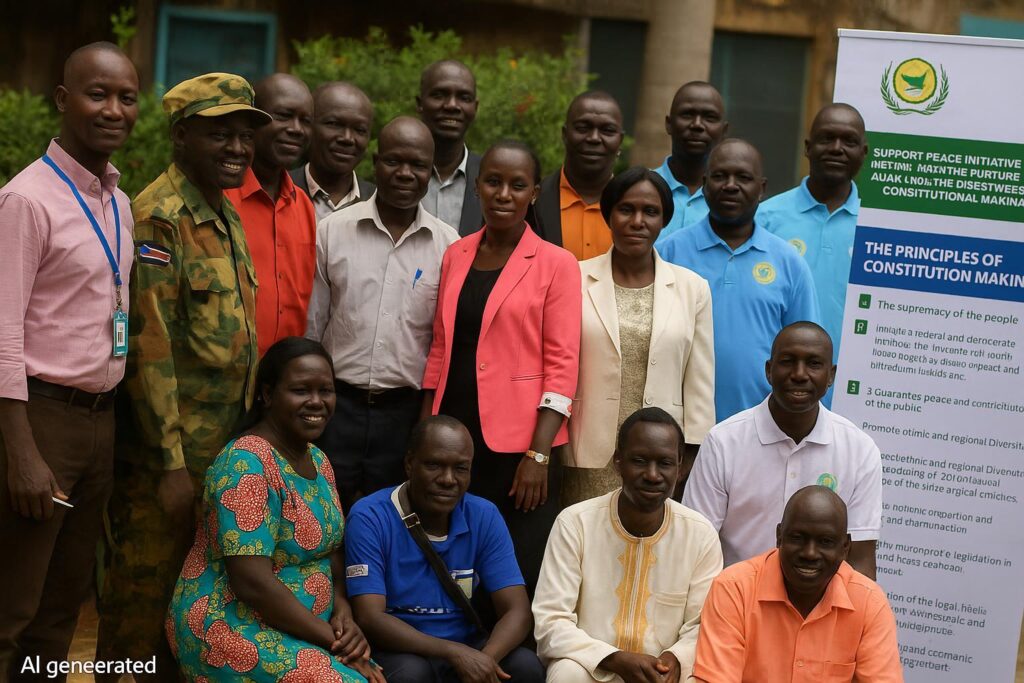Why a People-Driven Charter Matters
South Sudan’s quest for a durable charter entered a lively phase this week as civil-society group SPIDO convened a one-day symposium in Torit to explain the 2022 Constitutional Making Process Act and collect grassroots opinions.
Grassroots Consultations Gain Momentum
Community leaders, youth representatives and traditional chiefs packed Torit Freedom Hall, while thousands followed livestreams from Juba and the diaspora, signalling widespread appetite for participation in shaping the supreme law.
Organisers said similar dialogues will roll across Central, Eastern and Western Equatoria during the five-month project financed by a 60,000-dollar UNDP grant designed to broaden civic space and reduce post-war mistrust.
SPIDO Leads Civic Education Drive
Executive Director Wodcan Saviour Lazarus argued the Act opens unprecedented doors for ordinary citizens to influence governance, calling it “a guarantee for peace and security” provided opinions from cattle camps to city suburbs are carried into the drafting room.
SPIDO staff walked participants through key clauses, from formation of the Constitutional Review Commission to safeguards on gender equality, using vernacular translations to ensure clarity across the linguistically diverse audience.
Stakeholders Hail Inclusive Approach
George Kadimba, UNDP’s focal person in Torit, praised the forum for turning abstract legal texts into relatable discussions, saying feedback from counties will “light the path toward a legitimate, lasting constitution”.
Eastern Equatoria Peace Commission chair Matthew Ugwak predicted that grassroots insights gathered by civil society would help commissioners craft a draft that mirrors the country’s cultural mosaic and mitigates future conflict.
Timeline and Budget in Focus
According to SPIDO’s schedule, consultation reports will feed the national commission by December, keeping parliament’s 2024 deadline in sight while maintaining financial discipline within the modest 60,000-dollar envelope.
Looking Ahead to a Shared Future
If momentum holds, observers believe the process could cement a culture of dialogue vital for South Sudan’s transition, offering a template other post-conflict nations may study in their own pursuit of people-centered governance.


